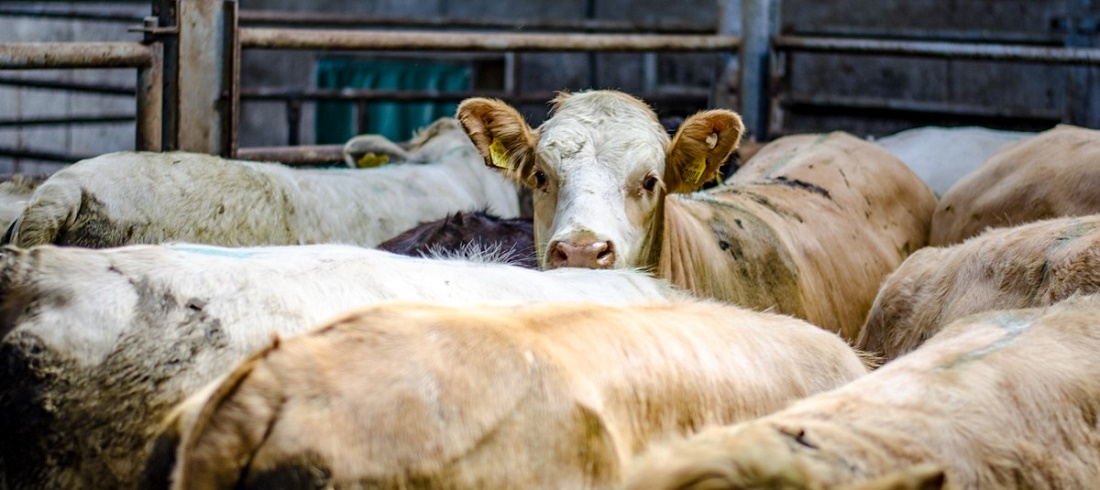
Meat industry prepares program to meet EU anti-deforestation law
Oct, 28, 2024 Posted by Sylvia SchandertWeek 202442
With no definitive response yet coming from the EU regarding the requirement for the new anti-deforestation law for beef trade, the Brazilian industry plans to present a pilot traceability and monitoring project for the supply chain to the EU. The aim is to ensure the compliance of cattle already raised on farms authorized to export to the bloc.
Currently, Brazil follows a specific traceability protocol to export beef to the EU. The SISBOV system mandates individual identification and monitoring of cattle at least 90 days before slaughter, and that they remain on the certified property for 40 days prior to shipment to the slaughterhouse. However, the EU’s anti-deforestation law (EUDR)—which was initially scheduled for implementation on December 30 but may be delayed—requires traceability from the animal’s birth.
Here’s an interactive chart that compares Brazil’s beef exports to the EU from January to August between 2021 and 2024. The data comes from Datamar’s DataLiner.
Beef to EU | Jan-Aug 2021 vs. Jan-Aug 2024 | TEUs
Source: DataLiner (click here to request a demo)
The proposal from the Brazilian Beef Exporting Industry Association (ABIEC) suggests that cattle up to 13 months old, acquired for fattening by certified properties and tracked through Animal Transit Guides (GTA), should be considered eligible for meat export. This is because, generally, cattle of this age have only passed through one farm before moving to a fattening property.
“The issue is not entirely resolved, as not 100% of the properties would meet this requirement. However, with the help of certifiers already involved in the process, we could use the GTA to trace back and verify if the previous property where the animal was kept also meets the anti-deforestation requirement,” said Danielle Schneider, traceability coordinator at ABIEC, during a cattle traceability event organized by IMAFLORA in Cuiabá last week.
The goal, she noted, is to “save” as much of the current stock of cattle being fattened on certified properties as possible. According to ABIEC, Brazil has 1,200 properties certified to sell cattle for beef supply to the EU, with a total stock of 6 million animals. “This doesn’t mean that these animals are ready for slaughter; it only indicates that they are registered in the SISBOV database. We don’t have information about their age,” she added.
Ms. Schneider mentioned that the idea is in its early stages of discussion with the Brazilian Confederation of Agriculture (CNA) and European certifiers, aiming to test it as a pilot project in 2025, relying on a possible postponement of the new law’s implementation.
Proposed by the European Commission, the EU’s executive branch, the postponement is seen as likely by the sector. At the Salon International de l’Agroalimentaire (SIAL) in Paris, a source told Valor that the fact the commission itself proposed the delay indicates it is likely to be approved by the European Parliament.
Data from Serasa Experian, presented at the event in Cuiabá, indicates that approximately 5% of the properties currently certified for export to the EU would be unable to comply with the new law. The assessment was based on territorial criteria, specifically whether deforestation occurred after December 2020. Traceability was not considered in this evaluation.
ABIEC noted that the average weaning age for calves in Brazil is around seven months. The information gathered by the association from certifiers indicates that most of the animals registered in the database for export to the EU are up to 13 months old. “This allows us to inform Europe that, throughout the animal’s life, it has only passed through two properties, both of which have been environmentally assessed to meet the necessary compliance,” Ms. Schneider said. (Alda do Amaral Rocha contributed reporting.)
The journalist traveled at the invitation of IMAFLORA.
Source: Valor Internacional
-
Meat
Nov, 18, 2021
0
Russia to import 300,000 tons of meat at zero tariff
-
Other Cargo
Nov, 18, 2022
0
Brazil: revenue from poultry genetics exports fell in October, says ABPA
-
Grains
Apr, 12, 2022
0
The amount of soybeans exported until the 2nd week of April indicate reduced output in the month
-
Ports and Terminals
Feb, 01, 2022
0
Terminals at the Port of Santos are expected to grow 65% by 2040



